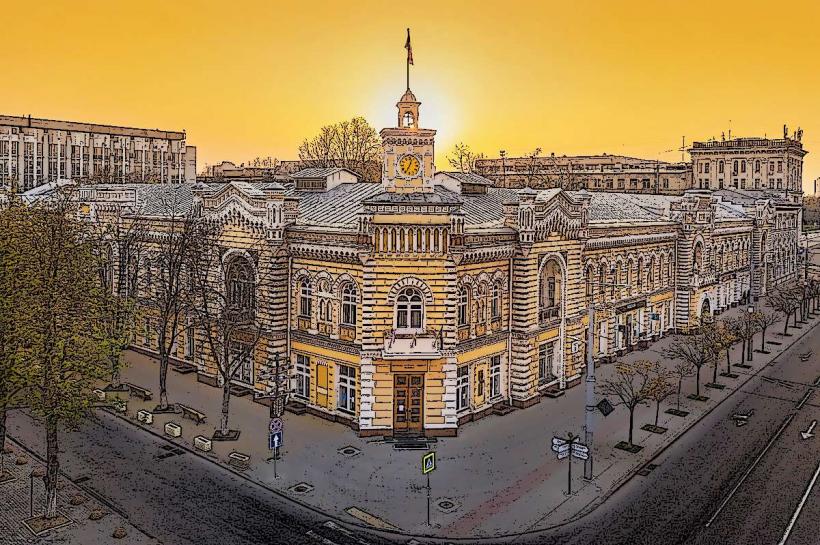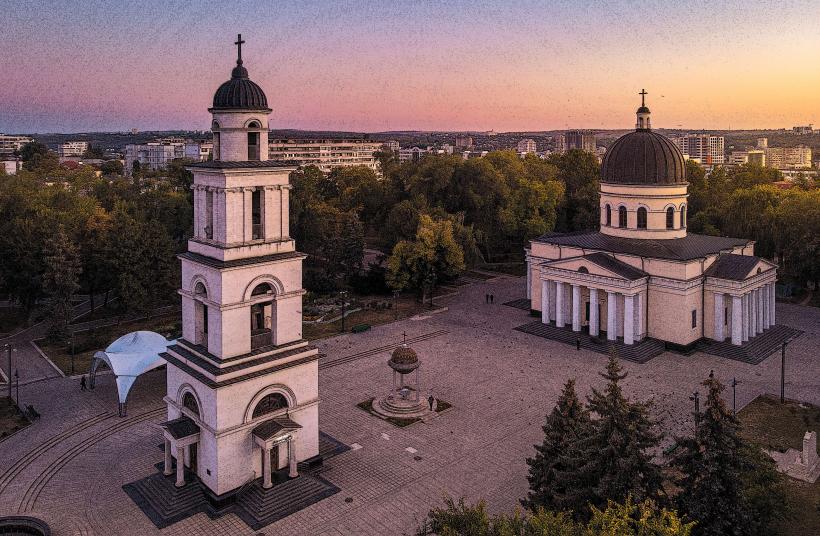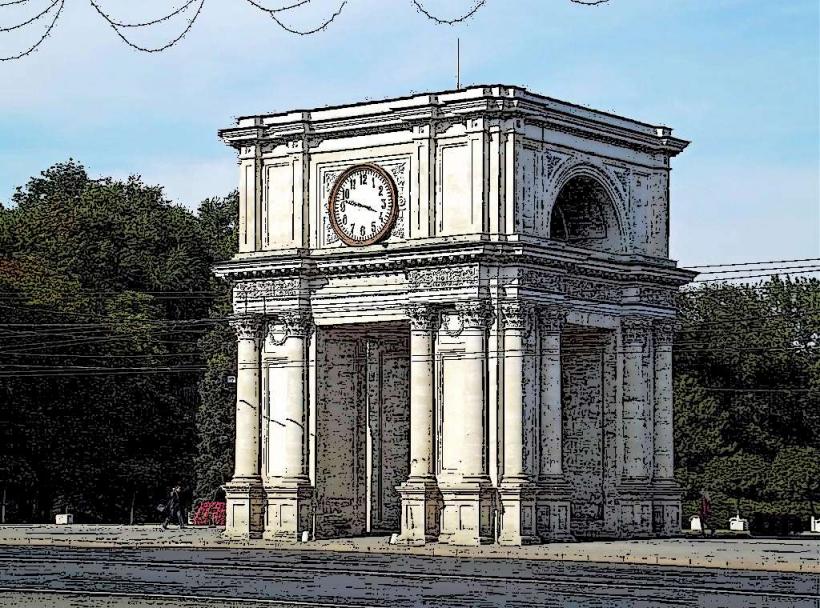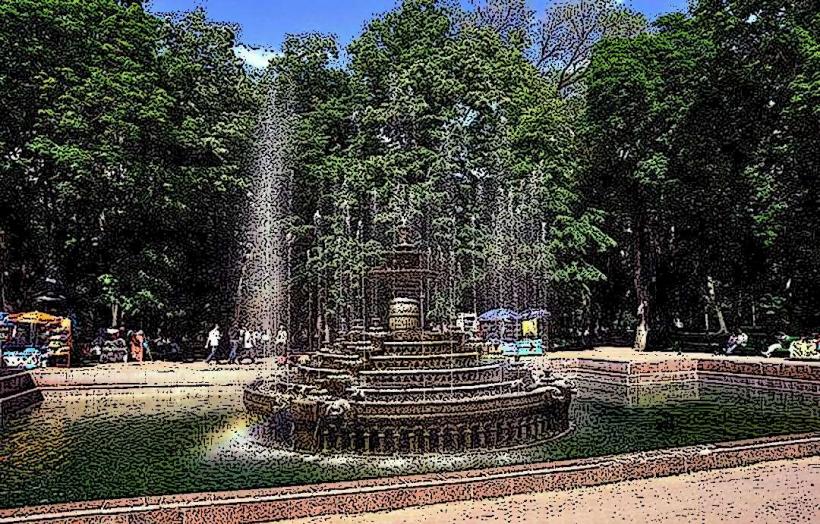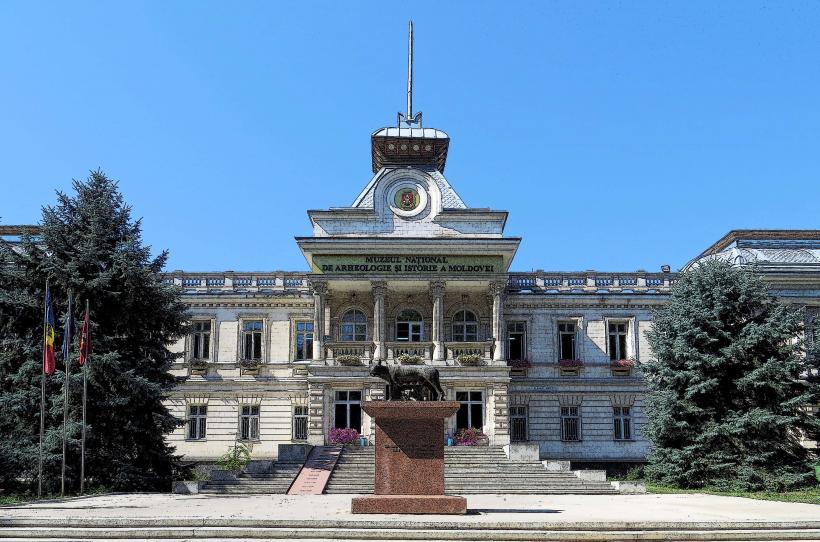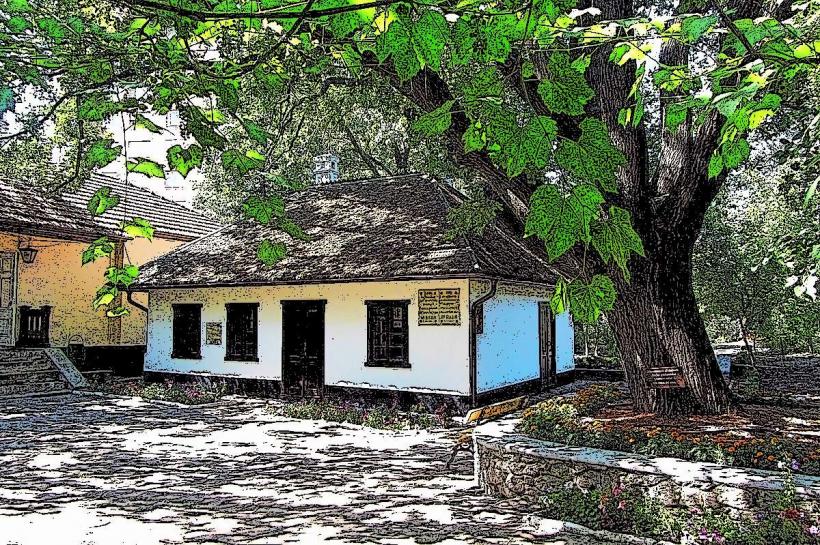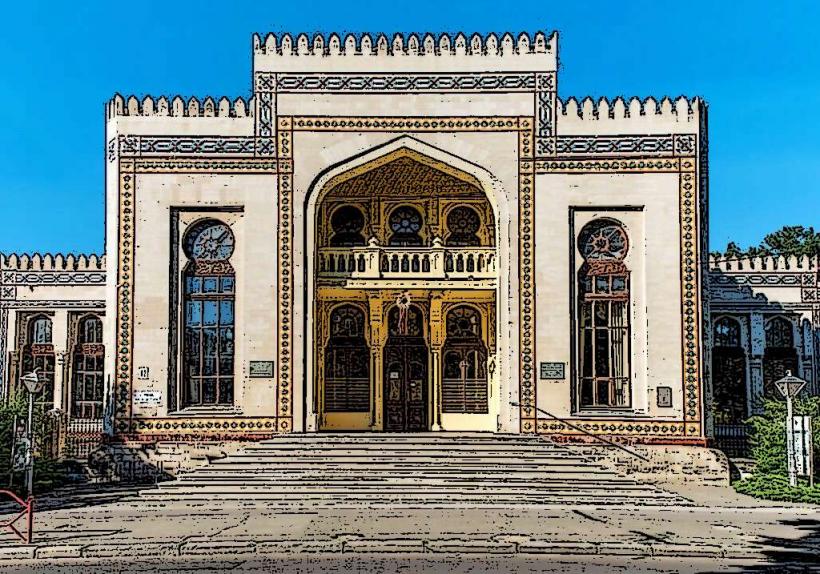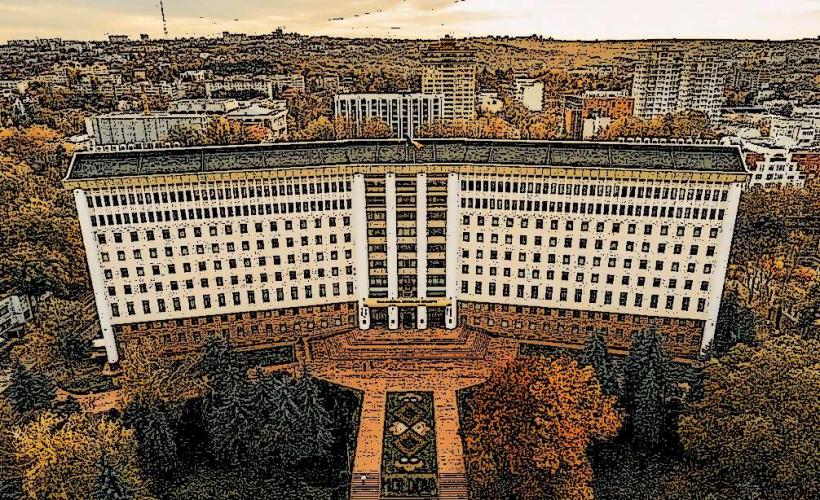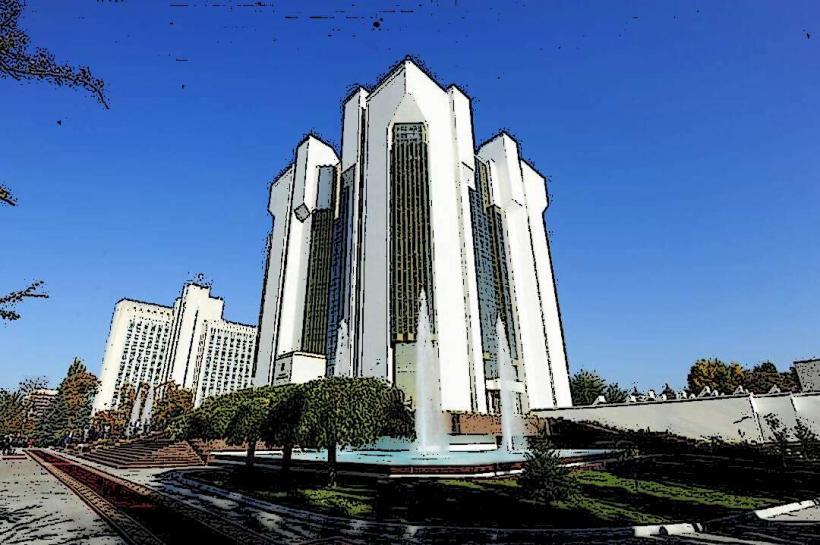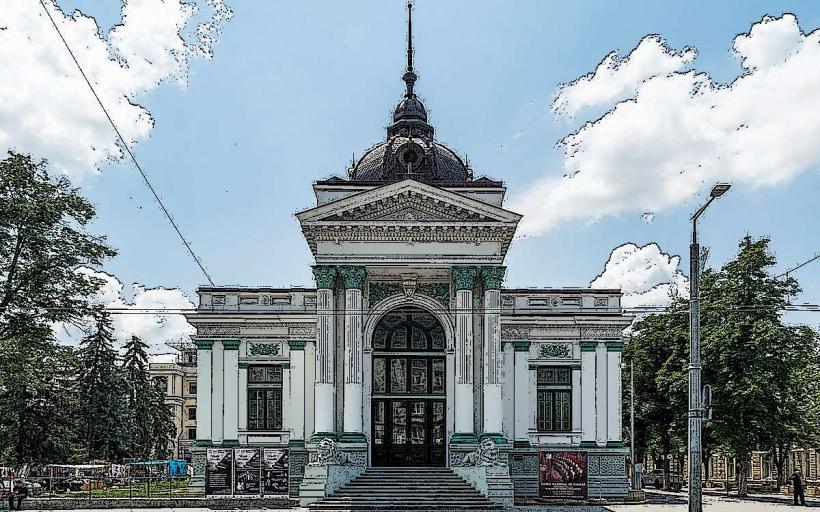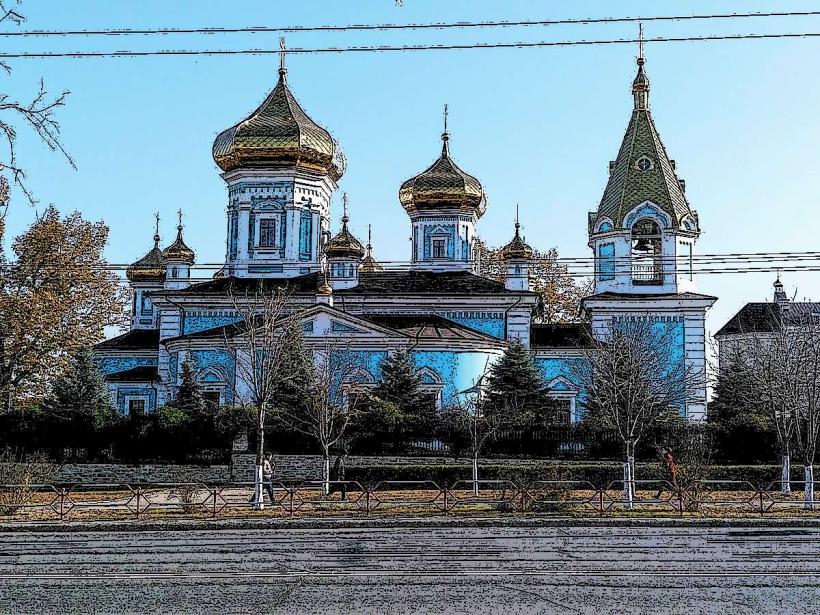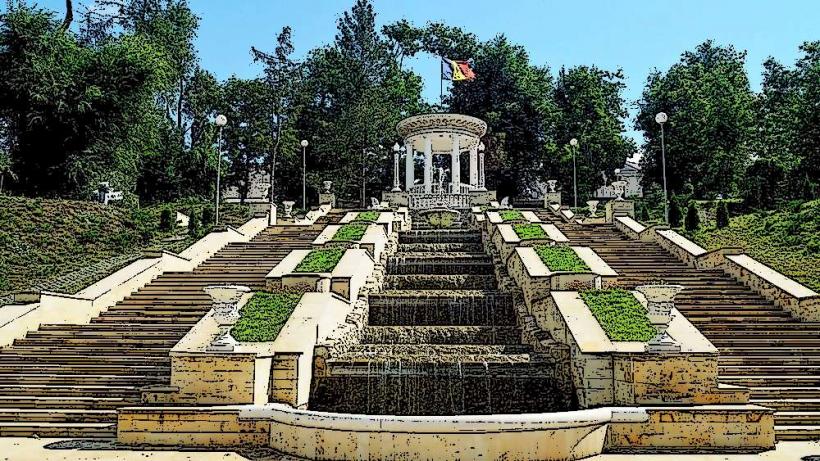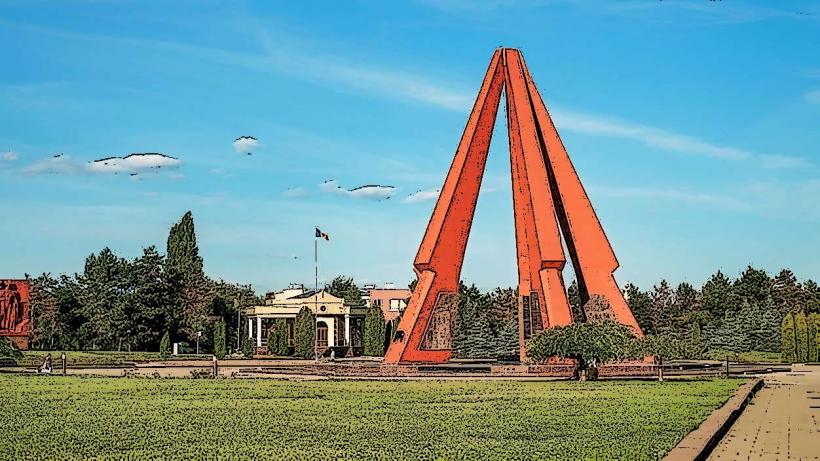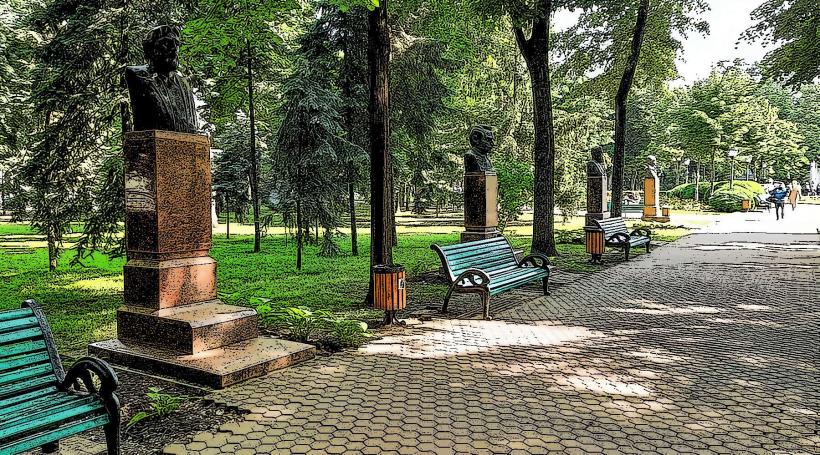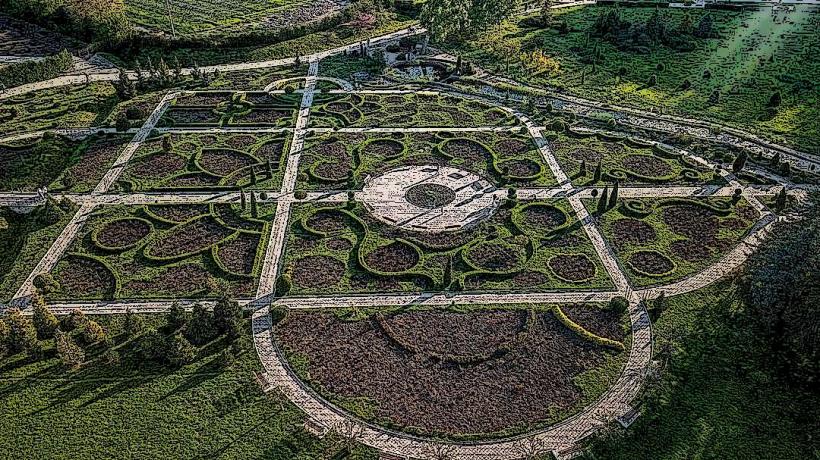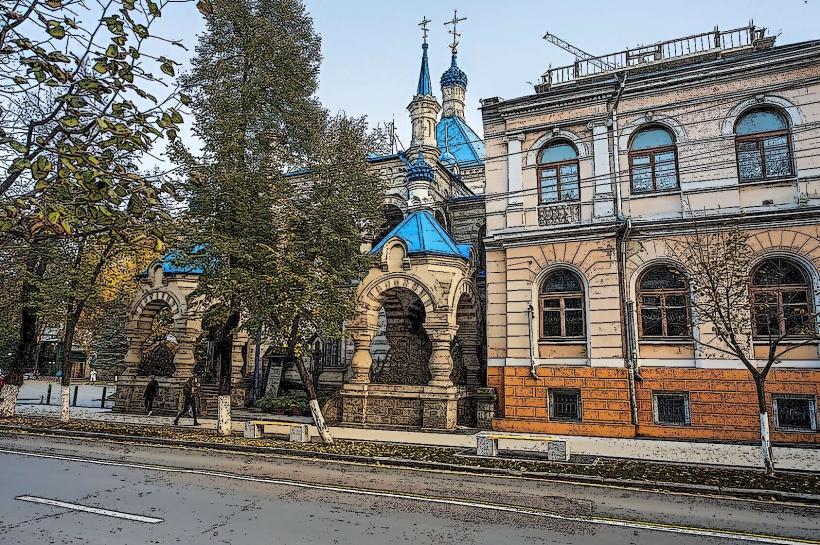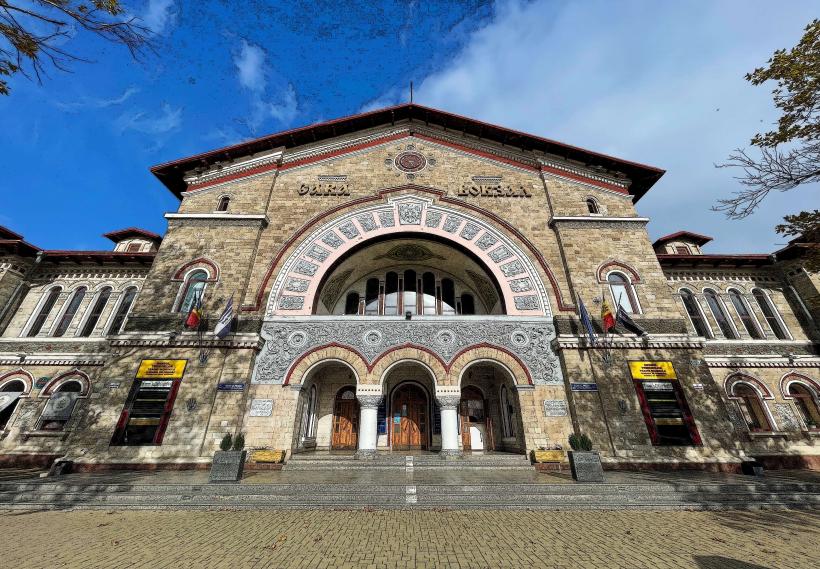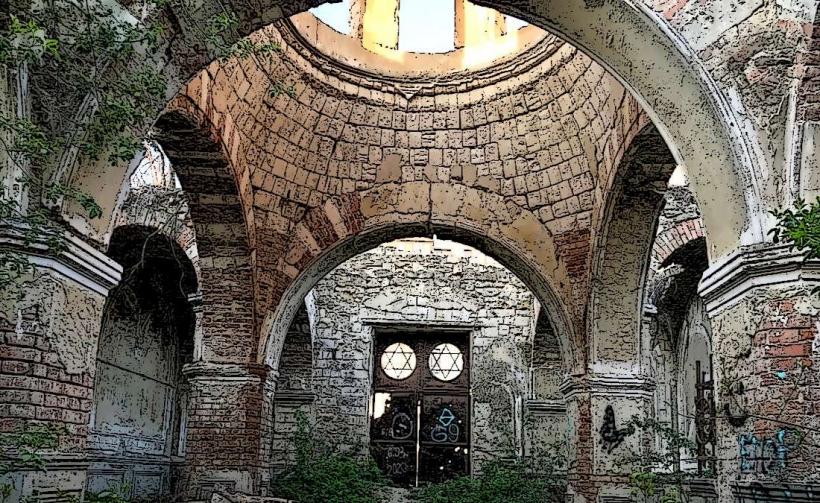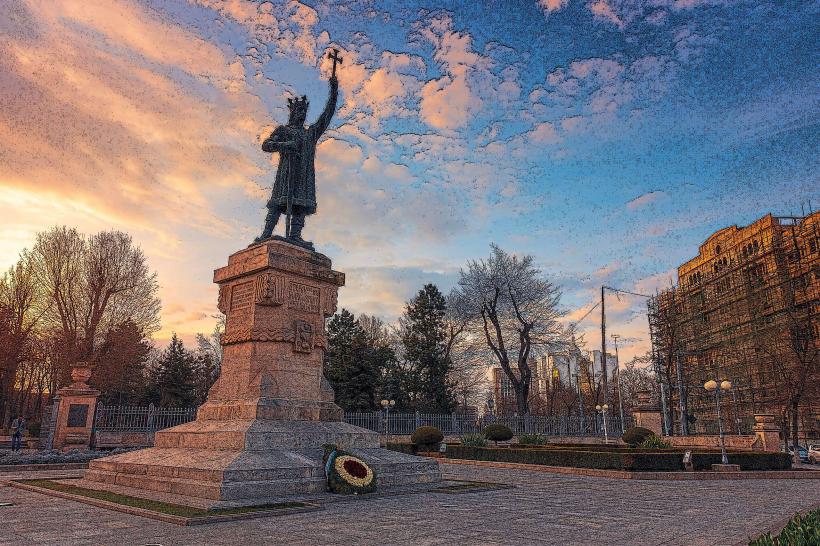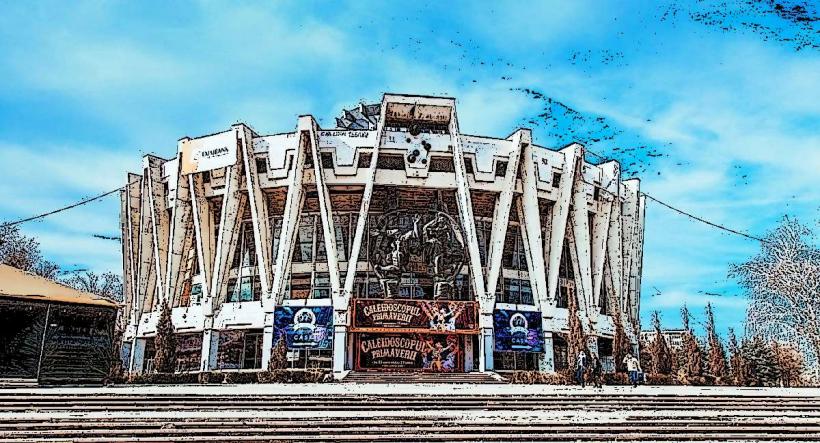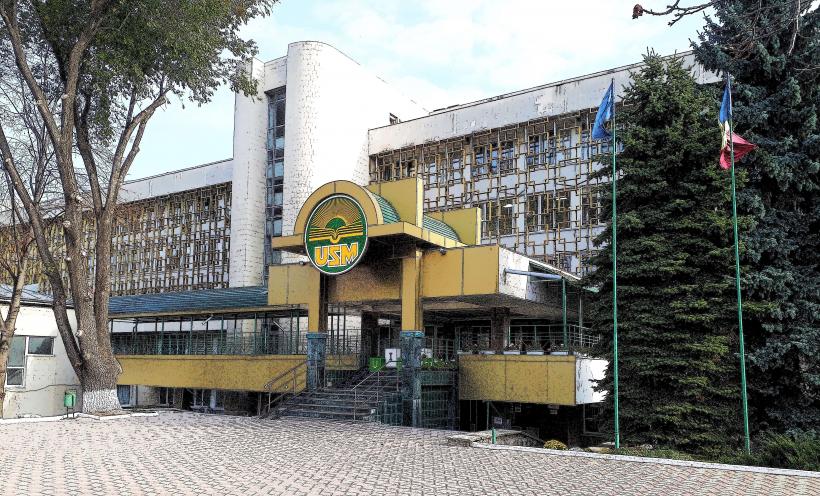Information
Landmark: Mihai Eminescu TheatreCity: Chisinau
Country: Moldova
Continent: Europe
Mihai Eminescu Theatre, Chisinau, Moldova, Europe
The Mihai Eminescu National Theatre is a prominent cultural institution located in the central sector of Chisinau, Moldova. It serves as a primary venue for dramatic arts performances in the country.
Visual Characteristics
The theatre building features a neoclassical architectural style, characterized by a symmetrical facade and classical elements. Its exterior is predominantly light-colored, often white or cream, with decorative pilasters and cornices. The main entrance is typically adorned with columns, leading into a multi-tiered auditorium with traditional theatre seating and stage setup.
Location & Access Logistics
The theatre is situated at Bulevardul Stefan cel Mare si Sfant 79, in the heart of Chisinau. It is approximately 0.5 kilometers north of the city center's main intersection. Public parking is available on adjacent streets, though often limited, particularly during performance times. Multiple public transport routes serve the area; trolleybus lines 1, 4, 5, 8, 22, and 24 have stops within 100 meters of the theatre entrance.
Historical & Ecological Origin
The Mihai Eminescu National Theatre was established in 1921, initially known as the National Theatre of Bessarabia. Its original purpose was to promote Romanian language and culture through dramatic arts. The current building underwent significant reconstruction and renovation, particularly after World War II, maintaining its classical architectural integrity. It was named after the Romanian national poet Mihai Eminescu.
Key Highlights & Activities
Attending dramatic plays, comedies, and classical performances is the primary activity. The theatre hosts a diverse repertoire of both national and international works. Specific events include seasonal premieres and guest performances by other theatre troupes. Guided tours of the interior are occasionally available by prior arrangement, offering insight into the theatre's history and backstage operations.
Infrastructure & Amenities
The theatre provides public restrooms on multiple levels. Seating is arranged in stalls, balconies, and boxes, offering various viewing perspectives. There is no dedicated shade structure outside the main entrance. Cell phone signal (4G/5G) is generally strong within the building and surrounding area. Several cafes and restaurants are located within a 200-meter radius, offering pre-show and post-show dining options.
Best Time to Visit
The best time to visit for performances is during the evening, typically starting between 18:00 and 19:00, when shows are scheduled. The theatre season generally runs from September to June. For photography of the exterior, late morning or early afternoon provides optimal natural light. Chisinau experiences warm summers and cold winters; spring and autumn offer the most temperate weather for general exploration.
Facts & Legends
The theatre's facade features a bust of Mihai Eminescu, a prominent figure in Romanian literature. During the Soviet era, the theatre was known as the A.S. Pushkin Russian Drama Theatre, reflecting the political climate of the time, before reverting to its original name after Moldova gained independence. A lesser-known fact is that the theatre's original troupe performed in various temporary locations before the current building became its permanent home.
Nearby Landmarks
- Cathedral Park: 0.3km East
- Triumphal Arch: 0.4km East
- Government House: 0.2km North
- National Museum of History of Moldova: 0.7km South
- Central Market: 1.5km South-West

